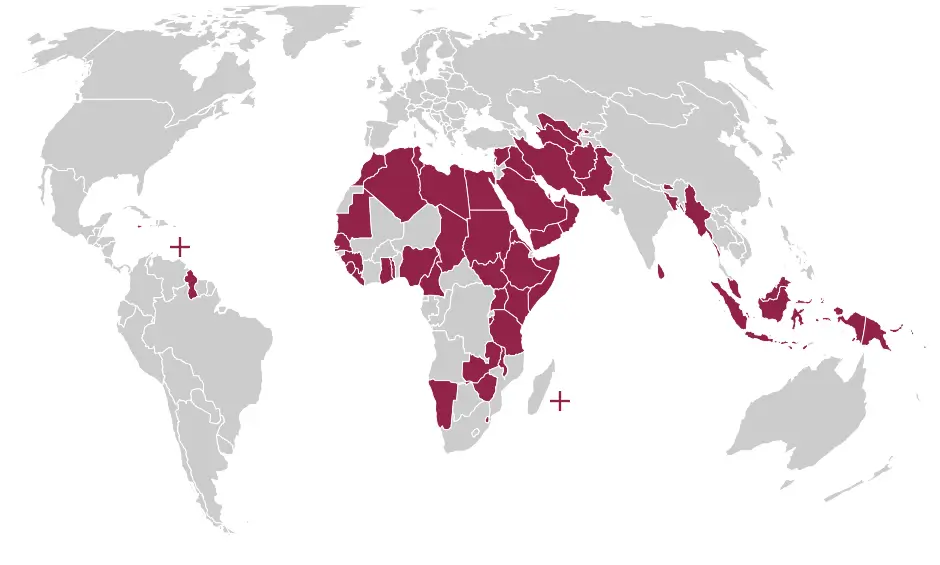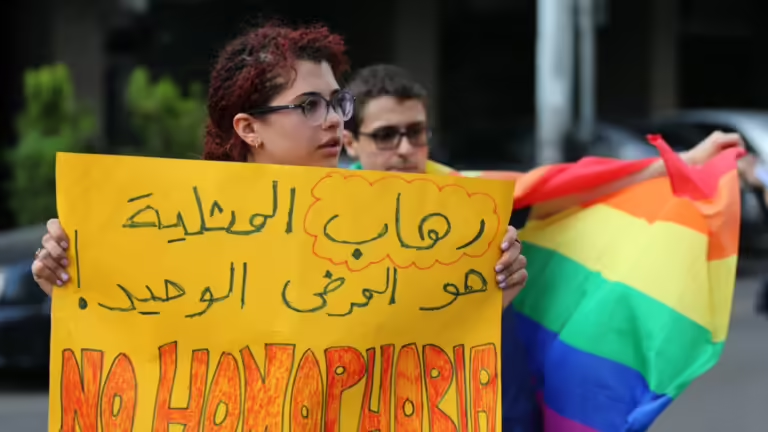The right to love and live freely, regardless of sexual orientation, is a fundamental human right. However, the reality for many LGBTQ+ individuals around the world is far from ideal. In a significant number of countries, homosexuality remains illegal, with harsh penalties ranging from imprisonment to the death penalty.
This article explores the current state of LGBTQ+ rights globally, focusing on how many countries criminalize homosexuality and the impact of these laws.
The Numbers: A Look at Criminalization
As of June 2024, according to the Human Dignity Trust, there are an estimated 64 countries that still criminalize lesbian, gay, and bisexual (LGB) people. This number reflects laws that target private, consensual same-sex sexual activity. It’s important to note that this figure doesn’t encompass the broader challenges faced by the LGBTQ+ community, such as discrimination and limitations on same-sex marriage and adoption rights.
Here’s a breakdown of the criminalization landscape:
- Type of Criminalization: Laws against same-sex relations can be broadly categorized as:
- Specific prohibitions: These laws explicitly outlaw same-sex sexual activity.
- Broader sodomy laws: These laws criminalize all forms of sodomy, impacting both heterosexual and homosexual acts.
- Severity of Punishment: The penalties for violating these laws vary greatly:
- Imprisonment: Sentences can range from a few months to life imprisonment.
- Death Penalty: In a particularly harsh stance, 12 countries have the death penalty on the books for same-sex sexual activity, with at least 6 actively implementing it.
Regional Breakdown of Criminalization
While the fight for LGBTQ+ rights is ongoing globally, some regions have a higher concentration of countries with anti-homosexuality laws:
- Africa: A significant number of African countries (around 30) criminalize same-sex relations.
- Middle East and North Africa: Several countries in this region, including Iran, Saudi Arabia, and Yemen, have the death penalty for homosexuality.
- Southeast Asia: Brunei and some Indonesian provinces have laws criminalizing same-sex activity.
- Caribbean: A few Caribbean nations still have anti-sodomy laws on the books.
Impacts of Criminalization
The criminalization of homosexuality has a devastating impact on the lives of LGBTQ+ individuals. Here are some key consequences:
- Fear and Insecurity: Living under the threat of arrest and punishment creates a constant sense of fear and insecurity for LGBTQ+ people.
- Limited Access to Healthcare: LGBTQ+ individuals may be hesitant to seek healthcare services due to fear of discrimination or exposure.
- Forced Concealment: The need to hide one’s identity can lead to social isolation, depression, and mental health issues.
- Violence and Abuse: LGBTQ+ people in these countries are more vulnerable to violence and abuse from both individuals and authorities.
Positive Developments: A Glimpse of Hope
Despite the challenges, there are positive developments in the fight for LGBTQ+ rights. Here are some encouraging trends:
- Decriminalization Efforts: An increasing number of countries are decriminalizing same-sex relations. This positive shift reflects growing global acceptance of LGBTQ+ identities.
- Increased Visibility: The LGBTQ+ rights movement is gaining momentum, with more individuals and organizations advocating for equality.
- Shifting Public Opinion: Public opinion around the world is becoming more accepting of LGBTQ+ people.
The Road Ahead: Moving Towards Equality
The fight for LGBTQ+ rights is far from over. Here are some key steps that can be taken to ensure equality for all:
- Advocate for Reform: Supporting organizations working for LGBTQ+ rights and urging governments to decriminalize homosexuality are crucial steps.
- Challenge Discrimination: Speaking out against discrimination and promoting awareness about LGBTQ+ issues can foster a more inclusive society.
- Promote Education: Educational initiatives can help combat prejudice and foster understanding.
Conclusion
The criminalization of homosexuality is a violation of fundamental human rights. While there are significant challenges, the growing movement for LGBTQ+ equality offers hope for a future where everyone can live openly and freely, regardless of sexual orientation. Through continued advocacy, education, and collective action, we can achieve a world where love truly knows no bounds.
Additional Resources:
- Human Dignity Trust: https://www.humandignitytrust.org/wp-content/uploads/resources/Injustice-Exposed-the-criminsalisation-of-trans-people.pdf
- International Lesbian, Gay, Bisexual, Trans and Intersex Association (ILGA): https://ilga.org/
- The United Nations Office of the High Commissioner for Human Rights (OHCHR):


![Understanding Abortion Laws in Colorado [2024 Rule]](https://trendingwork.com/wp-content/uploads/2024/06/Understanding-Abortion-Laws-in-Colorado-2024-Rule-768x512.webp)
